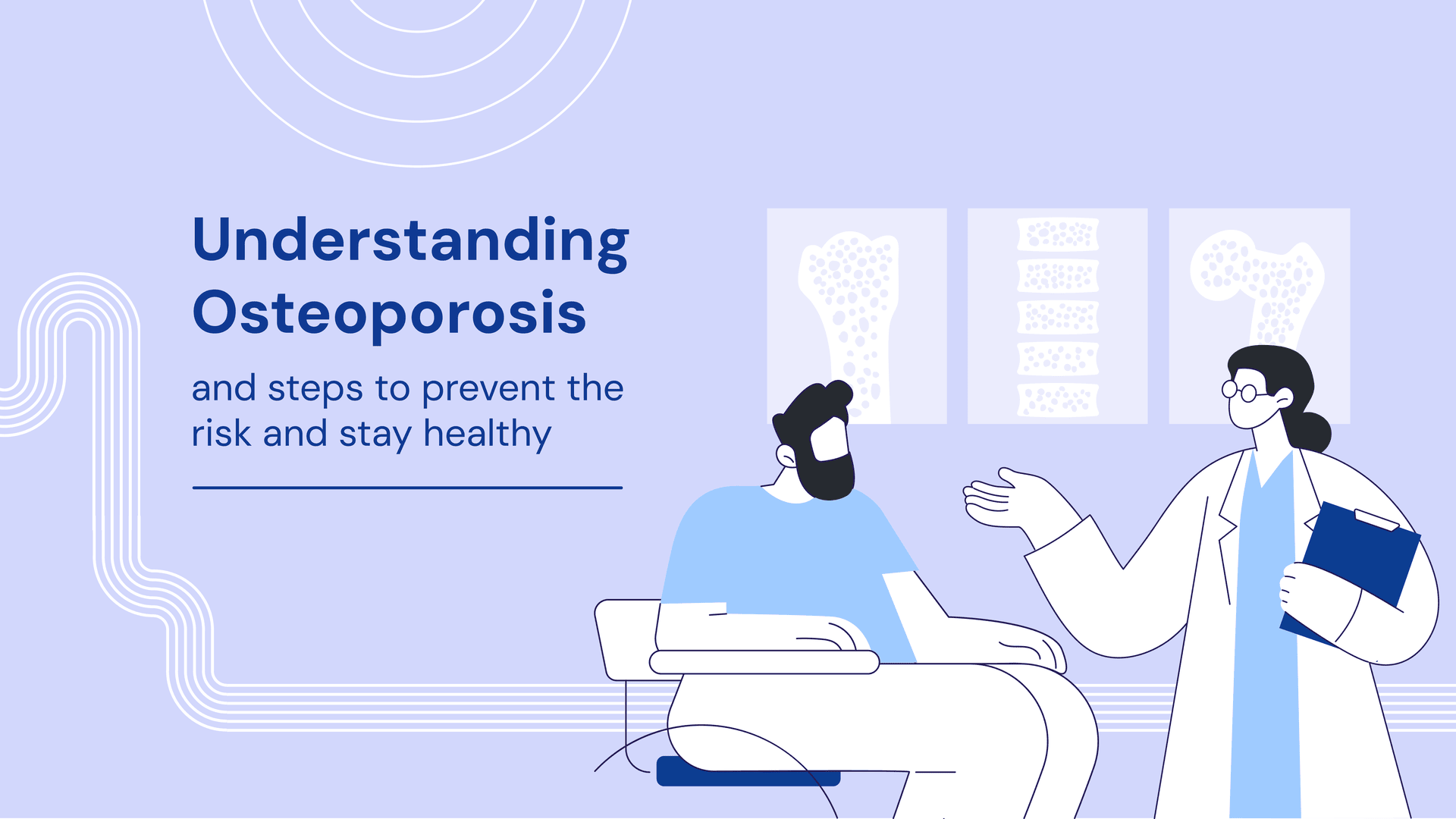Bones play an important role in the body and are a key part of our skeletal system. Some of their functions include providing protection to internal organs, helping produce blood cells and storing important minerals required by the body. As we age, our bones become weak and brittle, leading to osteoporosis, which is characterized by low bone mass (osteopenia) and associated pathologic fractures.
Various risk factors for osteoporosis include:
- Advanced age
- Family history
- Sedentary lifestyle
- Underlying medical conditions such as gastrointestinal diseases and rheumatoid arthritis
- Smoking and alcohol abuse
- Nutritional deficiency
- Long-term use of certain medications such as corticosteroids
- Hormonal changes especially in post-menopausal women
Why Early Diagnosis is Important for Osteoporosis?
Osteoporosis is considered a silent disorder as the condition does not show any symptoms unless there is some fracture or a minor accident. When bone becomes weak and brittle, even a minor fall or a movement like bending may cause bone fractures which commonly occur in the hip, spine and wrist regions. In many cases, the fractures related to osteoporosis are serious and may require hospital visits and in severe cases, surgery. Therefore, timely screening of bone health, especially in individuals with risk factors is crucial. Early detection allows the doctor to provide treatment that can strengthen the bones and prevent complications related to the conditions.
Screening and Diagnosis of Osteoporosis
Screening of osteoporosis includes the bone density test, which is mainly recommended for all women aged 65 and older. Additionally, men with 70 years of age as well as individuals with risk factors, should undergo screening to assess their bone health.
Diagnosis of osteoporosis requires combinations of various tests such as
- Medical history
- Physical examination
- Measurement of Bone mineral density (BMD)
Steps to Take to Protect Against Osteoporosis
Preventing osteoporosis is an important step to protect bone health and overall wellbeing. Implementing a healthy lifestyle can significantly reduce the risk of developing this condition later in life. The key steps to prevent osteoporosis include.
- Dietary recommendations: Calcium, vitamin D and proteins play a significant role to enhance bone health. Consume adequate amount dairy foods, leafy vegetables and supplements rich in calcium. Get enough amount of vitamin D through sunlight and supplements. Consume protein rich foods such as beans, egg and meat to support healthy bones. Additionally, limit sodium intake as consuming it in excess causes calcium loss.
- Weight bearing exercises: Regular exercises such as walking, jogging and dancing stimulate bone formation and improve bone density. Aim for at least 30 min of moderate-intensity-exercises such as cycling, swimming and brisk walking in a week for optimal overall health.
- Medications treatment: In case of low bone density or presence of osteoporosis, your doctor may recommend medication to strengthen bone and reduce the risk of fractures. Some of these may include calcium or vitamin D supplements and selective oestrogen receptor modulators.
- Other management strategies: These include
- Fall prevention by improving balance and strength, and using assistive devices
- Address pain from fractures with immediate medical attention.
-Content partner Happiest Health







